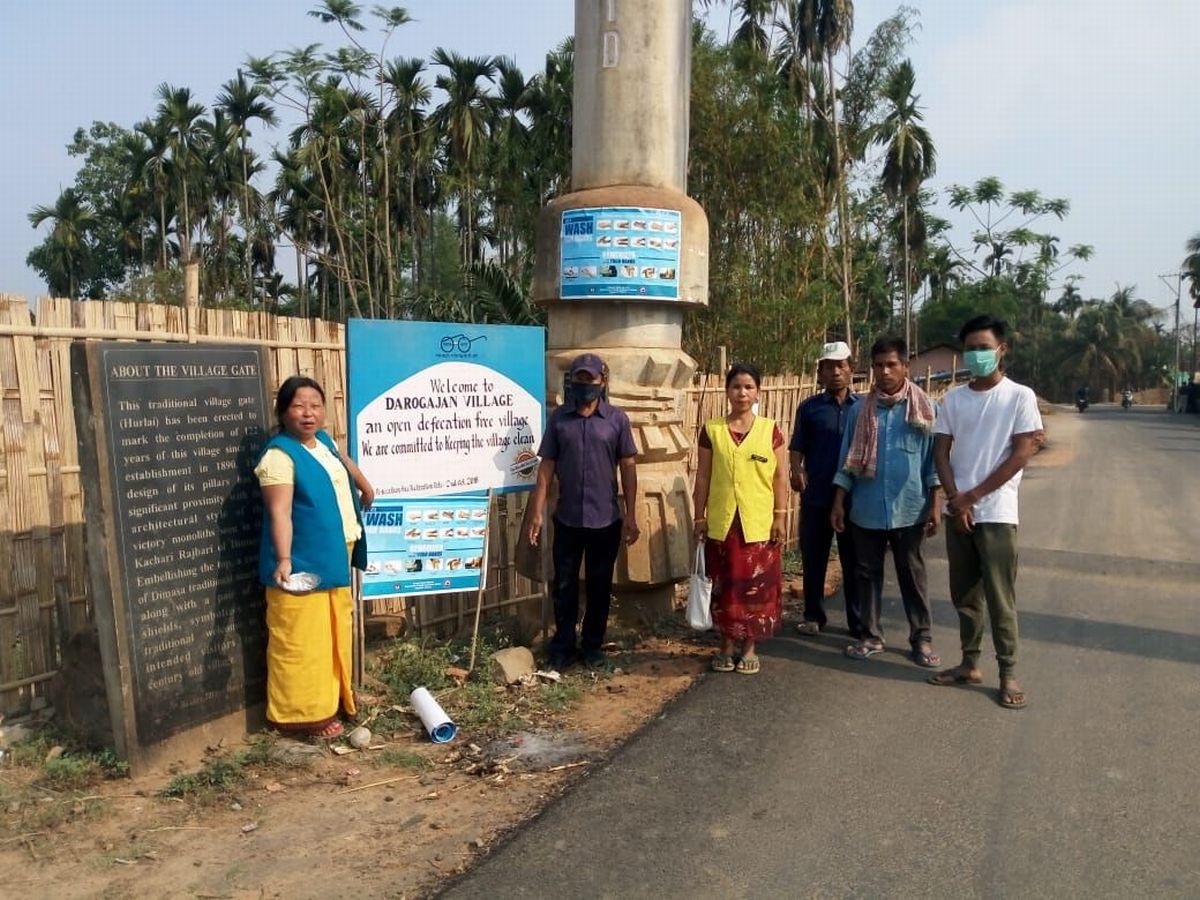Nagaland COVID-19: On the frontlines

Asha workers of Darogajan distributing IEC on COVID-19 in their locality.
Government and people need to stand in support of our healthcare workers
Veroli Zhimo
Dimapur | April 9
When Avi’smother comes home from work these days, she wonders about the people she treated at the hospital— the ones who coughed and the ones who sneezed.
Ever since positive COVID-19 cases began to appear in neighbouring north-eastern states, Avi says her mother, who has been a practicing health worker for 9 years, has grown concerned about catching the virus and spreading it to others.
Avi’s mother has moved into the guestroom and limits her interactions with the family. She has also completely stopped visiting her septuagenarian mother, just in case.
“Mom says we do not have positive cases yet in Nagaland. But every time a suspect case comes in at work, there’s a sort of panic that she secretly goes through,” Avi says. “We all try to stay optimistic for her and put on smiles, but there is always a collective sigh of relief when we hear that the results are negative,”she adds.
For Abo whose cousin works with a small team in one of Nagaland’s many rural health centres, things have not been as stressful.
However, the workload has increased as the team is involved in active surveillance of people who are put under home quarantine and checking up on people who have come home from outside the state.
Degree of separation
“They are actively involved in creating awareness and sensitising the public to follow proper hygiene, hand washing and social distancing as well as sending daily reports of their activities so they have their hands full,” Abo says.
According to conversations Abo has had with his cousin, “Convincing people to avoid rumours and only check with the official sites for information have been the toughest parts of the job so far.”
With the number of COVID-19 cases in the country steadily rising and the entire country presently under lockdown, Sezolu is worried about her elder sister, who is a nurse at a private hospital in Dimapur.
Her sister has moved in to a temporary hostel provided by the hospital.
While this means they do not have to worry about daily conveyance, Sezolu who, is now living with her other sister in their rented accommodation says, the separation is hard.
“I have underlying health problems and being a nurse, my sister has always been the one who takes care of me whenever I am unwell,” she says.
Now, despite repeated assurances from Sezolu that she is fine and healthy, her sister is constantly worried and phones in every few hours to check up on her.
Every morning at 8:00 am, Kahoni gathers her children together to pray for her son and his colleagues who are in duty in one of the state’s COVID-19 Hospitals.
Earlier in March, her son was deployed at the inter-state entry gates to screen travelers.
This she says did not sit well with her because they were initially not provided safety equipment and had to procure their own masks, sanitisers or gloves. Kahoni reveals that she was hesitant to send her son for duty under such circumstances, fearing that he could get infected while on duty.
But now, he has been relieved from the duty and is now stationed at the hospital, she says.
While Kahoni has put her faith in God, her other son Holoto viewed that not much has been done by the government in allaying the fears of health workers across the state.
Counseling for health workers, sensitisation for public
Referring to the announcement made by Chief Minister Neiphiu Rio that Rs 10 lakh will be paid as ex-gratia to any health worker currently in the line of duty, if he or she is afflicted by COVID-19, Holoto viewed that “despite the good intention, this is like telling health workers that they are signing their own death warrants.” Instead of giving them peace of mind, it makes things look grimmer, he added.
Also concerned about the mental wellbeing of frontline health workers, worker, Ketho suggests that “a dedicated 24x7 counseling helpline or centre should be set up exclusively for health workers.”
Narrating an incident involving his sister who is a nurse in the state capital’s COVID-19 Hospital, he shares that his sister was asked to vacate her rented apartment soon after the nationwide lockdown was enforced on March 25.
While his sister has since moved in with other family members, Ketho says the incident left her in a state of constant worry. “She carries an extra set of clothes to work so that she won’t have to wear her uniform outside because she is scared that others will ostracize her because of her job,” he says.
“There is only so much I can do to comfort her as a layman,” Ketho says. “I am sure the government has its hands full too, but a counseling helpline or centre for health workers is surely needed.”
As the battle against COVID-19 rages on, it is imperative that the government and the people stand in support to ensure that our most essential workers, the people on the frontlines of this unprecedented public health crisis, are not left under-equipped should the pandemic break out in the state.






